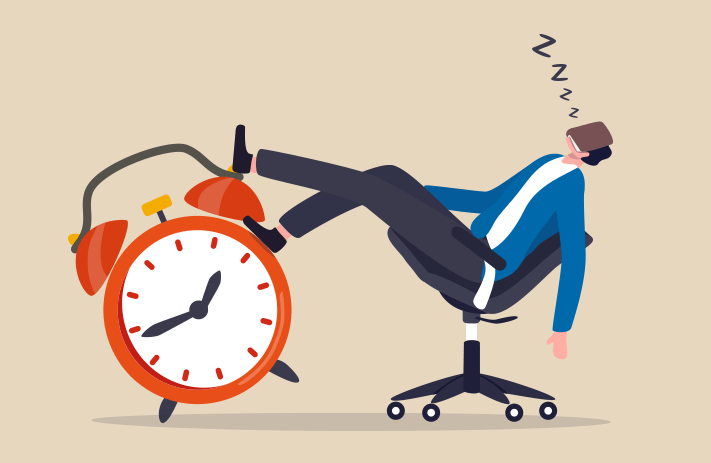
Severe procrastination can wreck lives and has major, unavoidable repercussions. Similar to stress, the impacts are not always immediately apparent until it is too late, and raising awareness is frequently insufficient to end the vicious cycle.
6 . MAKING UNWISE CHOICES .
Making poor decisions is one of the worst consequences of putting off things. When you put things off, you end up making decisions based on standards that probably wouldn't apply if you hadn't put things off. Items like as:
Feeling pressured to make a decision right away because there isn't much time left deciding which problem to tackle first—a personal or professional one—focusing on possible opportunities or getting back to the task you put off Emotions play a major role in our decision-making, and when we put off making something, negative feelings get worse. This compels us to make decisions that will be harmful to us in the long run. When you make decisions here, which is never the place to make decisions, you will behave out of fear.
7 . INJURING YOUR CREDIBILITY.
Your reputation is damaged if you continually promising to take action but then fail to follow through. No one desires vacuous assurances. You are harming not just your personal reputation but also your confidence and sense of self-worth. You'll notice that each time you put anything off, it becomes simpler because you won't be shocking yourself as much. People may cease relying on you and refuse to give you opportunities if they fear you will just put things off and let them handle the cleanup.
8 . PUTTING YOUR MENTAL WELL-BEING AT DANGER.
Stress and anxiety are frequently caused by excessive procrastination, especially when it concerns other people. Your health may deteriorate if you experience stress or overwhelm on a regular basis. Studies reveal a persistent relationship between procrastinating and increased levels of stress, anxiety, sadness, and exhaustion as well as decreased life satisfaction in a number of domains. It gets more difficult to behave when you're feeling anxious or depressed. Things not only get worse, but you also become more anxious and depressed. Not only are you delaying the task at hand, but you are also actively choosing to become more anxious and overwhelmed when you procrastinate. Find the source of your procrastination and address the underlying problems; don't unintentionally jeopardize your mental well-being.
9 . PUTTING YOUR PHYSICAL WELL-BEING AT RISK.
Procrastination and ill health are clearly related, according to Swedish medical studies.[7] It makes sense—delaying activities like going to the gym or taking care of yourself also means delaying your overall health. Even small routines like eating at the right time and getting adequate sleep can have a big impact on your general health. severe procrastination's negative effects on health, including migraines, cardiovascular disorders, and sleeplessness.
10 . WASTING VALUABLE TIME .
Although it may seem apparent, we would be startled to learn how much time is actually lost and wasted. You only have one life, and each moment you waste by delaying work or putting off aspirations, you are losing valuable time that you can never get back. The worst feeling in the world comes from realizing that nothing has changed even after two, five, or 10 years of procrastination. Being unable to turn back time makes this an awful sensation. You simply have to put up with the powerless sense of remorse. Nothing is worse than being angry with yourself because you know that things may have turned out quite differently if you had only taken
11 . CORRUPTING CONNECTIONS.
The effects of procrastination on relationships are profound and frequently disregarded. When a procrastinator realizes, it can be too late because they may not realize how the holdups lead to disappointment and frustration. They may even think that their spouse who puts things off isn't concerned enough to take quick action, taking this delay as a slight against them or a lack of thoughtfulness.
Closing remarks, procrastination has cumulative negative impacts that include tension, anxiety, dashed hopes, and low self-esteem. Develop Effective time management and psychological coping skills to help you cope with procrastination as it arises, rather than allowing it to control your life.
Upvoted. Thank You for sending some of your rewards to @null. Get more BLURT:
@ mariuszkarowski/how-to-get-automatic-upvote-from-my-accounts@ blurtbooster/blurt-booster-introduction-rules-and-guidelines-1699999662965@ nalexadre/blurt-nexus-creating-an-affiliate-account-1700008765859@ kryptodenno - win BLURT POWER delegationNote: This bot will not vote on AI-generated content